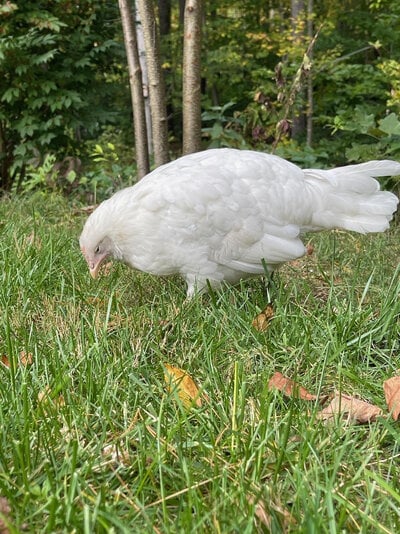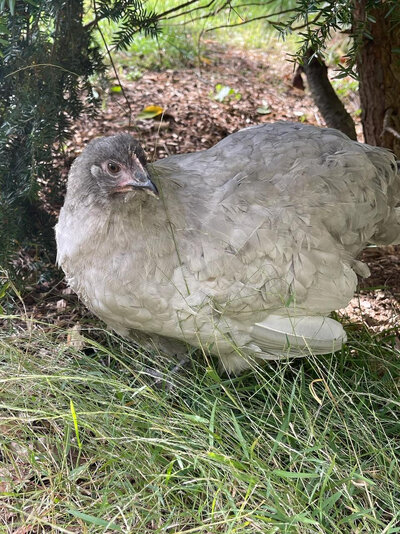my8hens
In the Brooder
- Oct 16, 2023
- 15
- 3
- 19
I'm a new chicken owner but do work in the veterinary field for the past 35 years (I work in small animal medicine unfortunatly we don't treat chickens)
I have 8 chickens, raised since 1 week old?, 4 were purchased from TSC (don't worry won't do that again :-((), and the rest from a breeder (NPIP tested)
We have had several bouts of diarrhea, 3 separate fecals tested positive for coccidia. Eimeria sp. oocysts present, many (>30)
Two hens are sick, still eating, drinking, free range with spervision, access to clean run and go in the coop at night but noticeably depressed, pale comb (leghorn), they are 1lb under the weight of thier siblings
I have done CORID in the water as sole source, they are fed a good diet, I keep the coop and run as clean as possible and recently read about doing oral CORID dosing @ .1ml/1lb so I did the whole flock on Saturday and then have treated just the two sick ones once daily sunday and not yet today (Monday), I will dose them tonight but should I be doing it twice daily?, and for how long?, could the anemia be form something else?, I just ordered the poultry dewormer 5X (fenbendazole) to try that as well, any and all thoughts would be MUCH APPRECIATED!!, I know they're just chickens but I really want to give them the best chance of survivng this, thank you!!!
I have 8 chickens, raised since 1 week old?, 4 were purchased from TSC (don't worry won't do that again :-((), and the rest from a breeder (NPIP tested)
We have had several bouts of diarrhea, 3 separate fecals tested positive for coccidia. Eimeria sp. oocysts present, many (>30)
Two hens are sick, still eating, drinking, free range with spervision, access to clean run and go in the coop at night but noticeably depressed, pale comb (leghorn), they are 1lb under the weight of thier siblings
I have done CORID in the water as sole source, they are fed a good diet, I keep the coop and run as clean as possible and recently read about doing oral CORID dosing @ .1ml/1lb so I did the whole flock on Saturday and then have treated just the two sick ones once daily sunday and not yet today (Monday), I will dose them tonight but should I be doing it twice daily?, and for how long?, could the anemia be form something else?, I just ordered the poultry dewormer 5X (fenbendazole) to try that as well, any and all thoughts would be MUCH APPRECIATED!!, I know they're just chickens but I really want to give them the best chance of survivng this, thank you!!!






